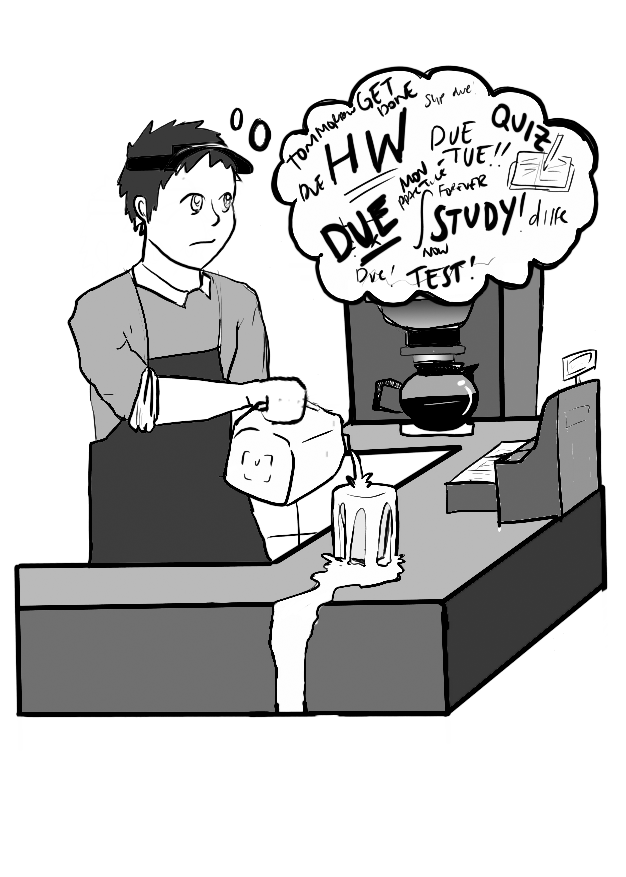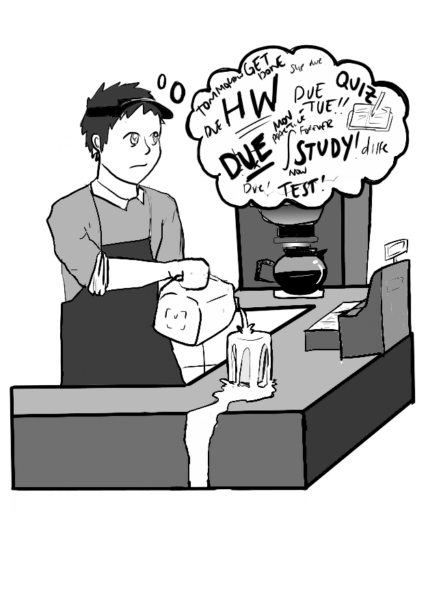

Many students at Aragon participate in activities before or after school. Some people play sports, some have artistic hobbies and others work paid jobs.
From teaching children to working in a supermarket, students with jobs have unique motivations, experiences and lessons learned from their responsibilities.
Senior Manuel Abundis, who works as a cashier at Suruki Supermarket in San Mateo, explains that money is only one of the reasons he chooses to work.
“The simple answer is I need money, but the more complicated answer is that I really need experience in a working environment since I have never done anything of that type,” he said. “And also it helps me interact with people a little bit better since there is so many people there every day.”
Freshman Sophia Gross cites two similar factors that play into why she chooses to teach younger children how to play piano.
“It pays, so that’s nice,” she said, “but also, you get to help kids connect to music which is fun.”
Not only do students benefit from the salaries they earn from working a job, but many often learn important lessons about managing their wages.
“Having a job is helpful because it helps you become more responsible, while at the same time it gives you more liberties,” Abundis said. “The money that you get, you can use however see fit as long as it’s appropriate. And I think that’s a valuable lesson to learn as a young adult.”
In addition to the material benefits from working a job, students who work have many memorable experiences.
Abundis has several fond memories of working at Suruki Supermarket.
“I like it how they play music in the store, and my co-workers are really fun to be around,” he said. “They dance and do some weird stuff, and that’s what I enjoy about my job the most, just talking to my co-workers and having fun at work.”
Having these fun experiences is a popular reason why many students choose to have a job whether it is over the summer or throughout the school year.
However, dedicating time to a job, of course, means that there is less time for other activities. Abundis finds that his job has heavily impacted his school life in terms of homework.
“I have to work my studying time around after work or before work, sometimes even during work,” he said. “On the weekends we have lunch breaks that are half an hour. So if I take my books I can get some studying done but not too much. Usually it has to be after work so I have to stay up kinda late to finish that.”
Freshman Ajay Paramasivan’s job as a youth soccer referee affects his school life as well.
“[My job] gives me less time to do homework and study over the weekends,” he said.
Paramasivan explains that there are several difficulties when it comes to his social life and his occupation.
“I don’t really have as much time to hang out with my friends because reffing takes a long time,” he said.
Abundis also grapples with a busy schedule.
“In the weekends it can be very busy, so sometimes I have a hard time spending time with friends because there is either work or doing sports,” he said. “It gets very hectic sometimes when I have to do three things in one weekend and have no time see my friends and they all have time to hang out.”
Jobs are like most extracurriculars, as students must find a balance between work and school responsibilities. For students planning on having jobs, Abundis offers one piece of advice.
“[You] should really reflect on [yourself] and ask if [you’re] ready for a job,” he said. “I think that a lot of people just say they want a job, but once they get it they see that they weren’t really planning ahead for the challenges that may come.”



